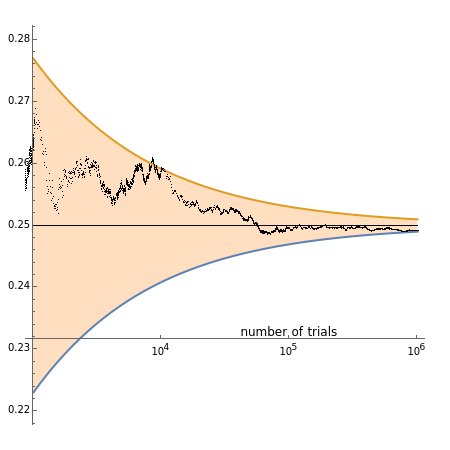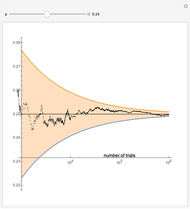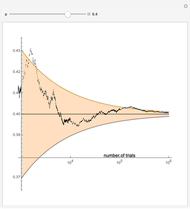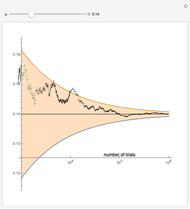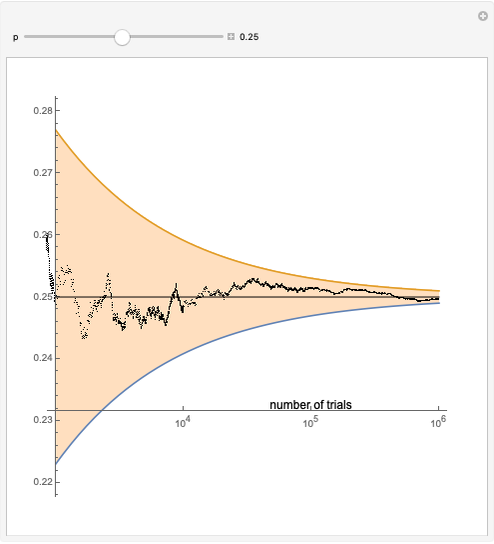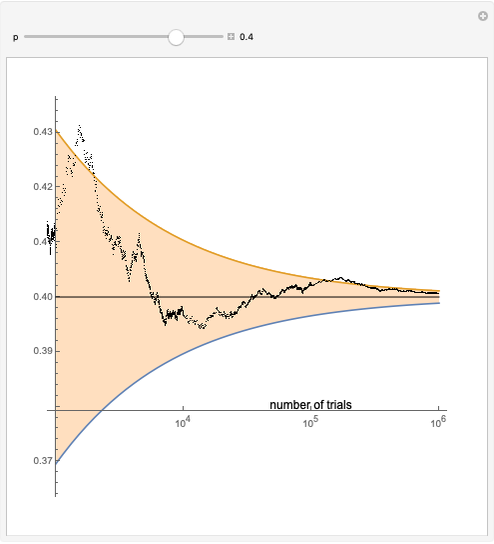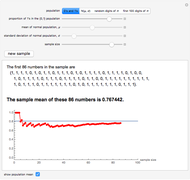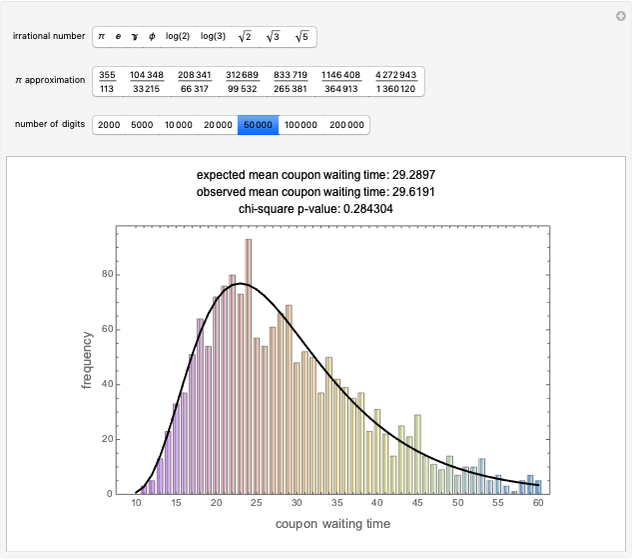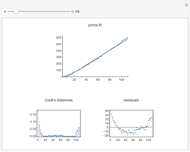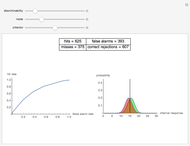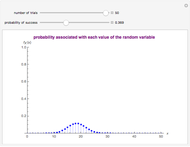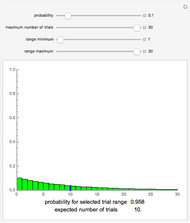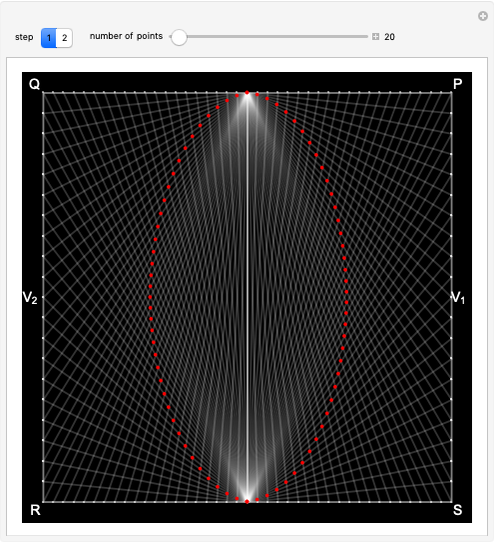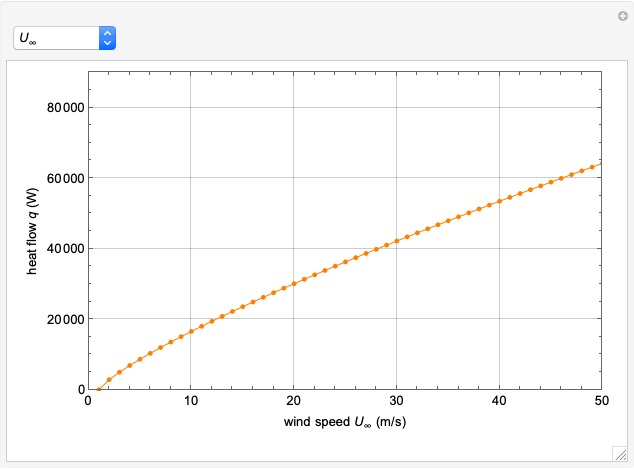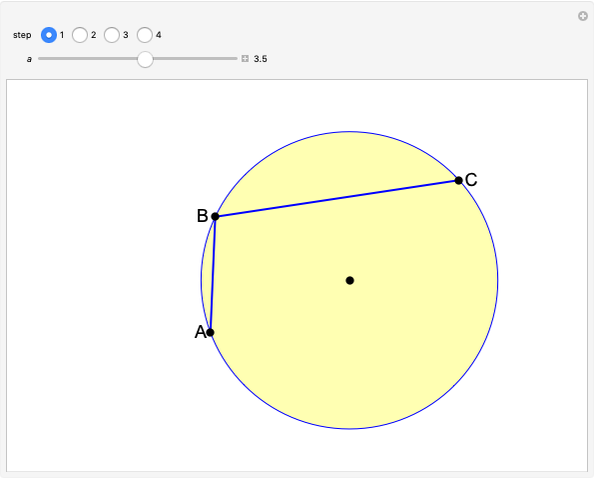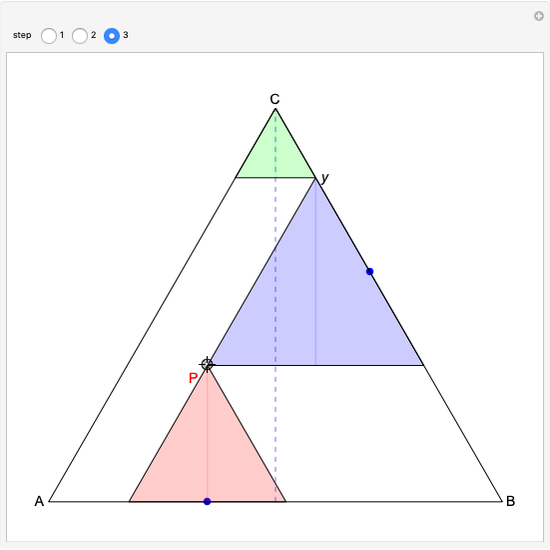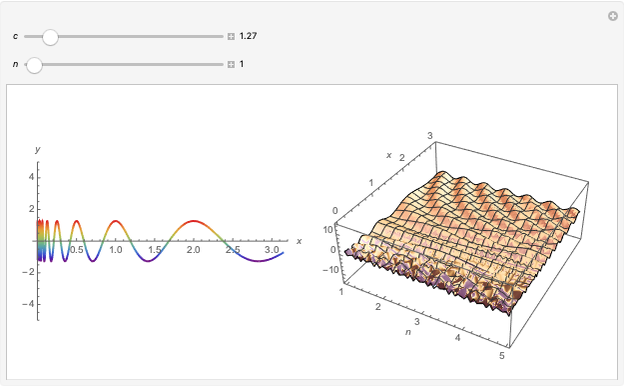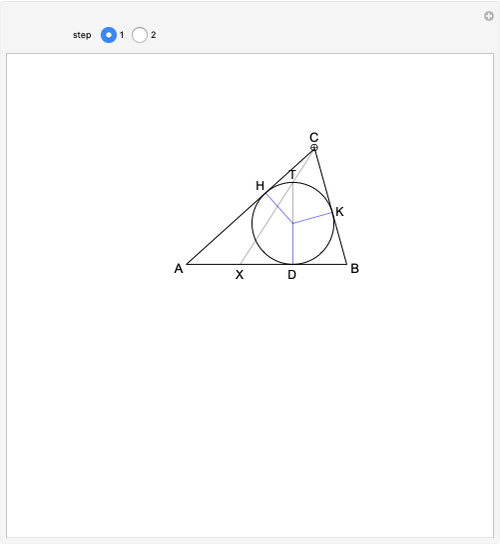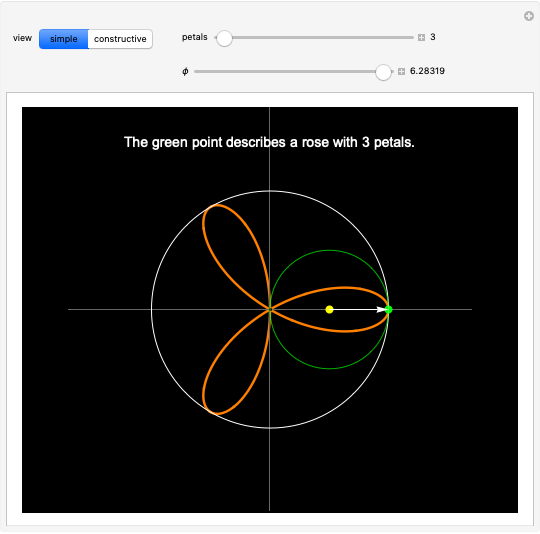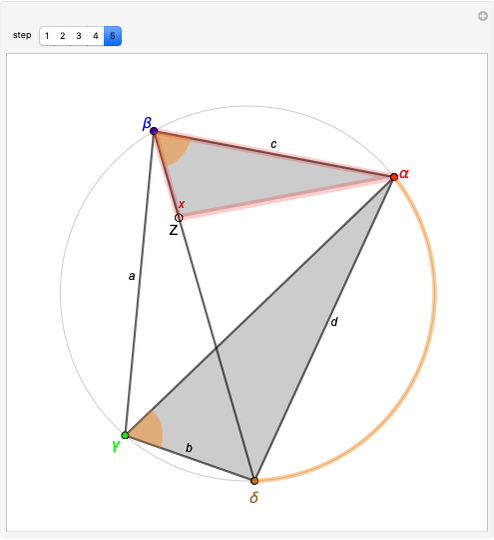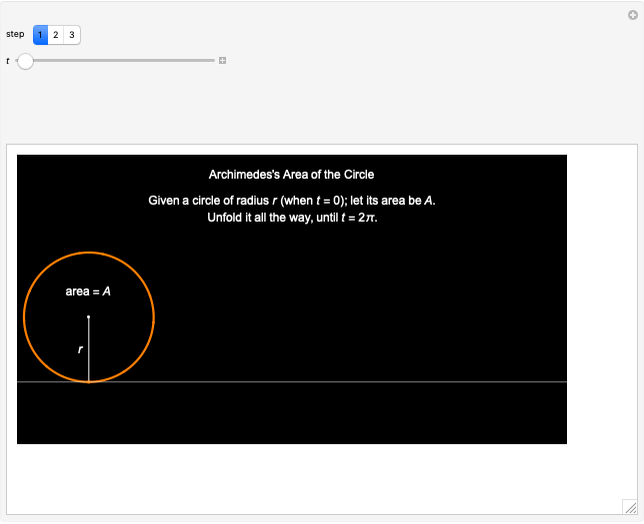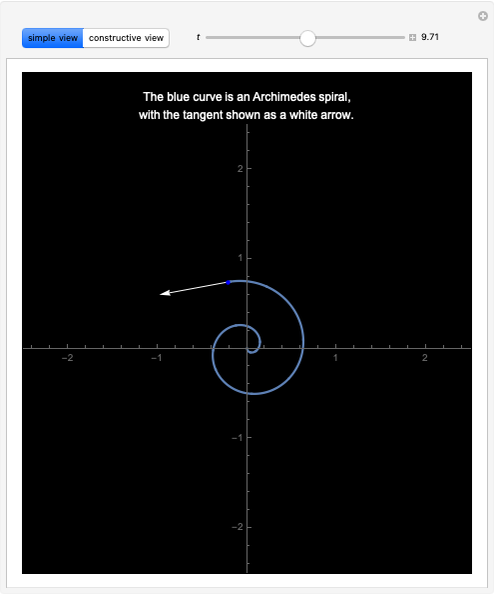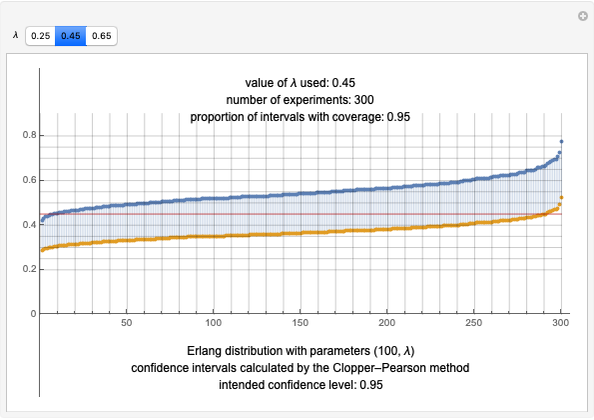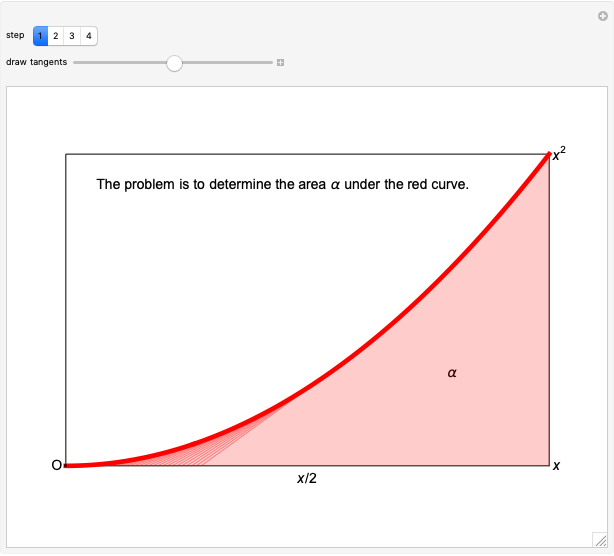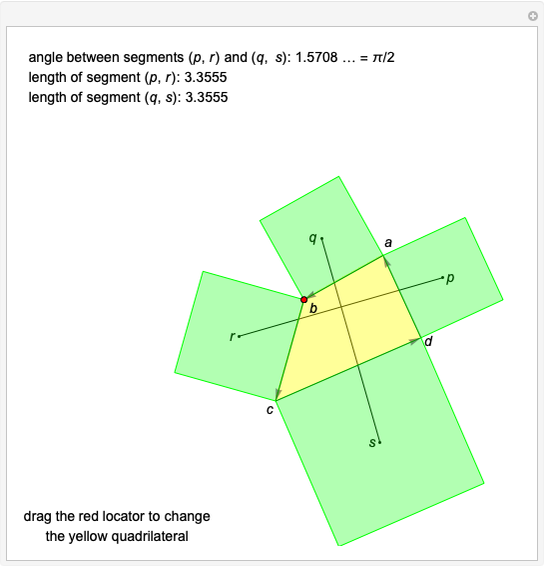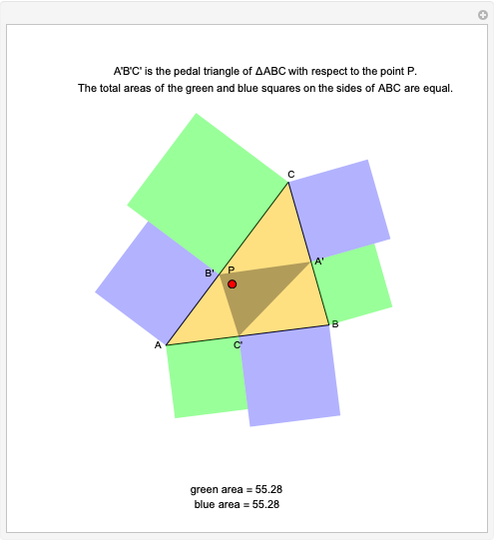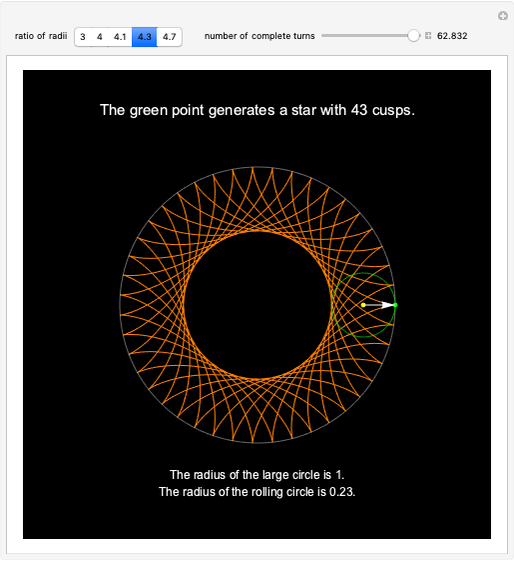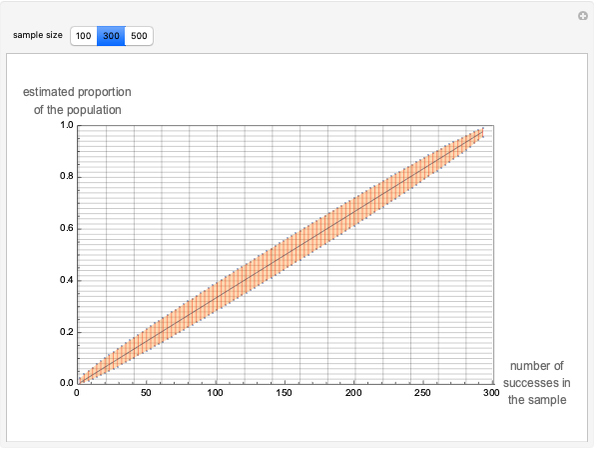The Law of the Iterated Logarithm in Probability Theory

Requires a Wolfram Notebook System
Interact on desktop, mobile and cloud with the free Wolfram Player or other Wolfram Language products.
The law of the iterated logarithm is a refinement of the strong law of large numbers, a fundamental result in probability theory. In the particular case of an unlimited sequence of Bernoulli trials with parameter  , the strong law asserts that with probability one, the relative frequency of successes converges to p as the number of trials grows.
, the strong law asserts that with probability one, the relative frequency of successes converges to p as the number of trials grows.
Contributed by: Tomas Garza (December 2007)
Open content licensed under CC BY-NC-SA
Snapshots
Details
The main reference for this topic is W. Feller, "Unlimited Sequences of Bernoulli Trials: The Law of the Iterated Logarithm," An Introduction to Probability Theory and Its Applications, Vol. 1, New York: John Wiley & Sons, Inc., 1970 pp. 204–208.
Permanent Citation
